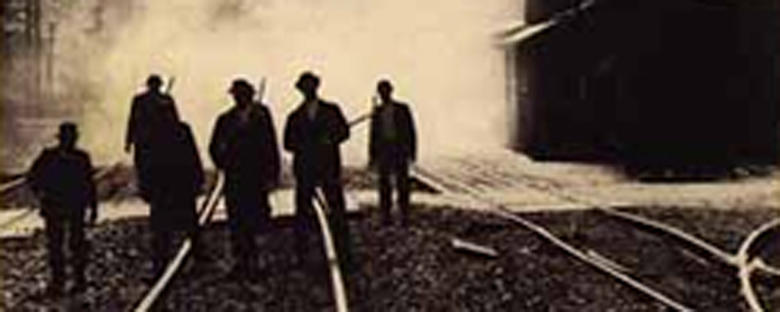Reviews
John Sayles
USA, 1987
Credits
Review by Leo Goldsmith
Posted on 30 August 2004
Source Artisan DVD
Related articles
features: John Sayles: American Independent
Based on the true story of the Matewan Massacre, John Sayles’ Matewan recounts the formation of a labor union in the small coalmining town of the film’s title. It is a characteristic John Sayles film: shot on location with a shoestring budget, with many locals as cast members, it is a portrait of a place and its inhabitants.
Here, Sayles’ subject is the strife of the workers of Matewan in the 1920s whose livelihoods are determined by the powerful coal company, miners whose families have lived in the small West Virginia town for generations, as well as the black and immigrant workers brought in to replace them. The integration of cultures, especially their music, religion and food, forms the bedrock of human detail upon which Sayles bases his labor history. And uniting the film’s many threads and characters is the gauzy, autumnal light of the cinematography, which lends the film the melancholy and patience of the film’s protagonist.
This character, Joe Kenehan (played by Sayles regular Chris Cooper), is a union organizer and “Red” from outside whose efforts to mobilize the workers are undermined at every turn by the violence and subversion of the coal company. Kenehan is a pacifist, hopeful of a peaceful resolution to the town’s problems with the establishment of an equitable relationship between the union and the company. But his efforts to quell the mounting violence between the impassioned laborers and the uniformly sadistic company heavies are all but futile. The company’s total dominance of every aspect of Matewan’s daily life (and the treacherous and brutal means by which they seek to protect that dominance) forces the workers into desperate acts with bloody consequences. Kenehan’s only compatriots in his efforts to keep the violence at bay are a coalminer’s widow and her young, idealistic son (played by a boyish, pre-Palace Brothers Will Oldham), and a steadfast black coalminer named Few Clothes, played (with typical Darth Vader power) by James Earl Jones.
Matewan subtly evokes a forgotten history, an overlooked footnote to the infamous story of the McCoy-Hatfield rivalry that Sayles happened upon while researching a novel about the history of labor unions. But beyond its basis in fact, the film has the patina of a local myth, narrated from the perspective of the boyish preacher many years hence. In many ways, the film is also a Western in the tradition of Shane, with its tale of a mysterious stranger helping to defend poor townspeople from greedy landowners. As in Westerns or myths, the story is told with wide moral brushstrokes; it is full of broad characterizations and obvious political allegiances. “There ain’t but two sides of this world,” Kenehan explains to the new union members. “Them that work and them that don’t. You work; they don’t. That’s all you got to know about the enemy.”
But for all of the binary simplicity of the film’s moral structure, the question of violence, its utility or even necessity, is the great ambiguity at the film’s center. The specter of the First World War haunts the characters of the film — the vicious gunmen that the company has hired, and the noble, but morbidly violent sheriff, Sid Hatfield, who wishes to protect the townspeople at any cost. However, Kenehan is not a lone gunslinger, but a pacifist, a conscientious objector to the Great War (“it was just workers fightin’ other workers,” he explains). His mission is not one of an avenging angel, but of a unifier.
We don’t do comments anymore, but you may contact us here or find us on Twitter or Facebook.



